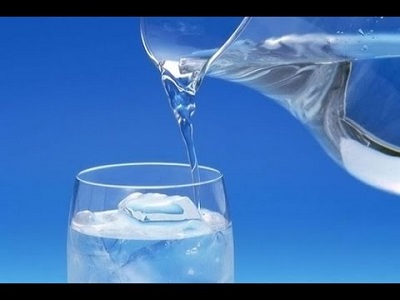On a hot summer’s day or after a hard workout it can seem like nothing but an ice cold drink will quench your thirst.
And now scientists have found that cool drinks really are the most satisfying – because they turn off thirst stimulators in the brain.
Researchers have identified neurons in the brain which appear to be responsible for controlling thirst.
These neurons – in the same part of the brain which monitors blood composition – trigger the feeling of thirst whenever the body’s water levels are imbalanced to encourage us to drink.
As soon as we start drinking, the signals from the neurons begin to subside and they turn off completely once enough liquid has been consumed.
Scientists studied the phenomenon in mice and discovered the brain signals were turned off more rapidly when they drank cold liquids.
Their findings help explain why thirst in humans is more speedily quenched by colder drinks.
Just experiencing cold inside the mouth – such as putting a chilled metal spoon against the inside of the cheek – could also trigger the signals to stop temporarily.
The researchers said this explained why people feel their thirst is quickly quenched when they suck on ice cubes.
Previously, thirst has been considered to be the body’s response to changes in blood volume or concentration which triggers a feeling of needing to drink so fluid balance is maintained.
But scientists were baffled as to why thirst reacted so quickly to drinking, before the water had time to absorb and affect blood composition.
The study may have helped solved the mystery as it revealed that the neurons acted intelligently.
They predicted how much water was needed and turned off signals once enough had been consumed – long before the body had a chance to absorb the water and adjust accordingly.
Eating food also triggered the neurons to put out more signals as the brain predicted the body would need more water to help process it. The faster people ate the higher the thirst signals were likely to be.
The authors wrote: ‘(This is) a straightforward mechanism for the brain to compare the needs of the body with the anticipated effects of ongoing food and water consumption and then adjust behaviour pre-emptively.
‘This in turn explains longstanding behavioural observations, including the speed of thirst satiation, the fact that oral cooling is thirst-quenching, and the widespread coordination of eating and drinking.’
Source: Daily mail
N.H.Kh

